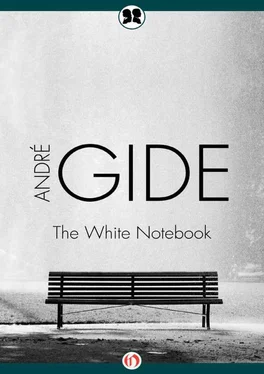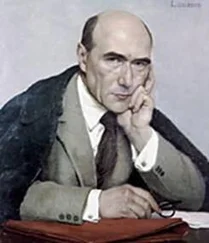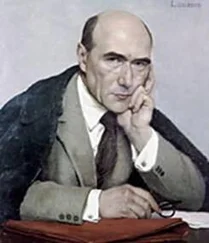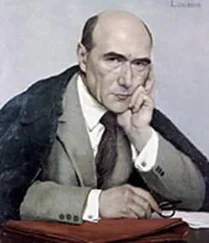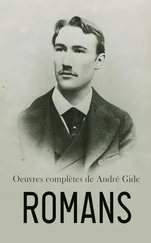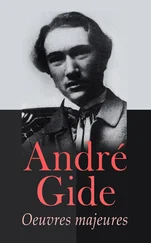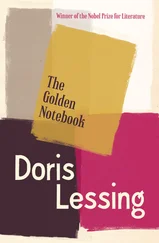“Thus Nirvana is experienced only as the taste of nothingness in non-life itself. It is negation.
“Our communion will never be perfect; or, if perfect, it will never be experienced as such.”
But harmony — music! Music carries the undulation of one soul all the way to the other soul.
Bodies hindered me; they hid the souls. The flesh is useless. An embrace should be immaterial.
Possession. An alternative for Allain — and for me. If only I could be convinced.… 47
At night when the body surrenders to sleep, the soul escapes. It flies hurriedly toward distant loves and possesses them immaterially. The body dreams.
Morning comes and the body stirs, awakens, rises. Again it takes possession of the little soul, which is again imprisoned. Distant memories are cause for regret — dear loves recalled merely as dreams … for normally you are accompanied by the body, little soul! People do not imagine caresses in the absence of bodies. Ah! If they knew! But they are all blind!
And each evening my soul flies to your side, to the side of the one loved by my soul. Like a weightless bird my soul alights on your lips, and with a slight tremor your lips begin to smile.
With a passionate (sehnsuchtsvoll) shout my soul summons yours. Like two merging flames our two souls fuse and plunge more deeply into space filled with harmonies produced by the beating of their wings.
They have taken their flight through space. It is night and the moon is beautiful. From vast sleeping forests rise masses of fog. Together we fly toward sweeter heavens, toward warmer breezes whose caresses our souls desired.
Through pines where the wind sings — in the forest chilled by sparkling dewdrops that fall on us as tears from sagging branches — over wheat that extends beyond the range of sight on the empty horizon and inclines at our passage, like a billowing sea traversed by gusts — to moist slopes where the petals of dormant flowers, finally refreshed, perfume the stars with their ecstatic dreams.
Through the night’s silence our souls pursue their swift untroubled flight.
Death when it comes will not separate our souls.
Beyond the tomb they will take flight and again join.
For separation of bodies does not make soul solitary.
The world can only separate bodies.
Nothing can stand in the way of the loving soul, for love has conquered all.
Love is stronger than death.
“Reason!” they say, and to me this is sheer arrogance. What has their Reason done?
It is always contrasted with the soul; when the heart acts, reason interferes.
It is repulsed by devotion. The sublime is always ridiculous. Daring, poetry — everything that makes life worth living is foolish. Reason would protect us; it is utilitarian, but it makes life intolerable to the soul.
It is despised by true lovers, for one who loves no longer lives for himself. His life is but a means of loving. If he finds one which is better and which will make for closer union, he will neglect — perhaps reject, forget — his own life in favor of it.
I have never had any happiness which reason sanctions.
( August 1888)
“It was already late and the others, tired, sat down to wait for us.
“The other hillside, ascended with great difficulty, sloped gently downward. The sun bathed the plain in golden, peaceful rays. At a bend in the stream was a castle with a slate roof; around it were the lower roofs of white farmhouses; under a thick fog was the pink heath and, protruding above it, a crest of grey rocks.
“The foliage of two chestnuts blended above our heads. On the slopes of the meadow, women were stacking hay; amorous sounds filled the air; and hovering over and enveloping everything was a radiant serenity, a penetrating tenderness that seemed to emanate from things and rise with the odor of the hay when night came. Our souls were refreshed by the setting.
“‘Lord,’ I exclaimed, ‘it is fitting that we remain here! Would you like to? Let us pitch our tent!’
“Then you smiled, but your smile was so sad that I sensed in it your desolate soul. My own shuddered for an instant. You understood too much and, quickly turning away in your fright, you sadly broke the spell.
“‘Come,’ you said. ‘They are waiting for us. We must leave all this.…’”
Emmanuèle and I begged her to sing. We were alone.
* * *
V*** sat down at the piano and began to play and sing Schumann’s The Sorceress. Her voice was but a puff of air, a fragile vase of emotion — it was pure emotion, with nothing to contain it as it escaped ethereally, revealing her soul. It seemed that the soul itself was singing and replacing her voice.
When she came to the high-pitched notes in the bewitching line “Es ist shun spät; es ist schon kalt,” she trembled and quivered like a broken object.
Your emotion was too much for you; tears poured from your eyes; then, ashamed of your confusion and worried because your heart also quivered involuntarily, you darted away. I followed you to your room.
“Oh, leave me!” you said. “Please leave me!”
I went away. I wandered until evening through the fields, my mind undulating with the flood of exaltations produced by remembered harmonies.
Let my soul sense its vitality through the effort to win in its arduous struggle. Then will come dreams of the impossible, of chastity, of faith. Then, endowed with new strength, it will be brave enough to overpower your soul in spite of your belligerent mind.
Your mind! I once resented your mind, your poor mind which was frightened by your troubled soul and which did its utmost to calm your outbursts of feeling. What struggles! And always to resist yourself! You wanted your will to prevail and you set it against invading tenderness.
“I shall never allow myself to be dominated by anything!” you thought.
I misunderstood all that. I only understood that your mind deprived me of your soul and that your soul desired me.
I sometimes hear your soul cry out softly, but your dominating mind subdues it. One day I shall force it to cry out and prevent your mind from stifling its pleas.
One day I shall force your poor soul to speak.…
Music, music — in anguished harmonies your astonished soul will recognize its counterpart and release the tears that it has long restrained. But when I start to play, you become alarmed and flee.
* * *
One summer night — a hot stormy night following a splendid day — all was still without. There was no breeze. My soul was expectant.
You came out on the terrace while the others remained inside. When I saw that you could not flee, I opened the window wide and sat down at the piano. The sounds came to you in waves.
I began to play Chopin’s first Scherzo —brutally, noisily, almost as a prelude at first, for I did not wish to startle your soul. When I came to the piú lento, I muted the melody and it cried, morbidly sweet. As pearls drop from a fountain, the high notes fell, obstinately the same but severally eloquent, while the harmony changed.
I went back to the agitato but with all the passion in my heart, making the anguished dissonances quiver. I stopped abruptly before you could break the spell. And I approached you and found you trembling; there were no tears and your eyes were radiant.
“André, why were you playing that?” you asked, and your voice was so different that I was frightened and dared not answer.
We remained silent.
“Look into the darkness,” you finally said, as if alarmed. “Is it not supernatural?”
Lightning flickered noiselessly on the horizon. The air was perfumed with pollen from lime-trees, with the scent of flowering acacias. I tried to take your hand; it was feverous but you rebuffed me.
Читать дальше
